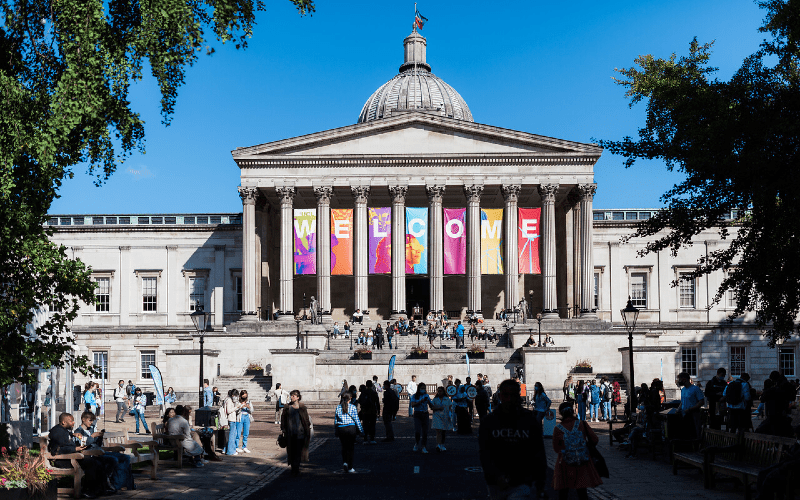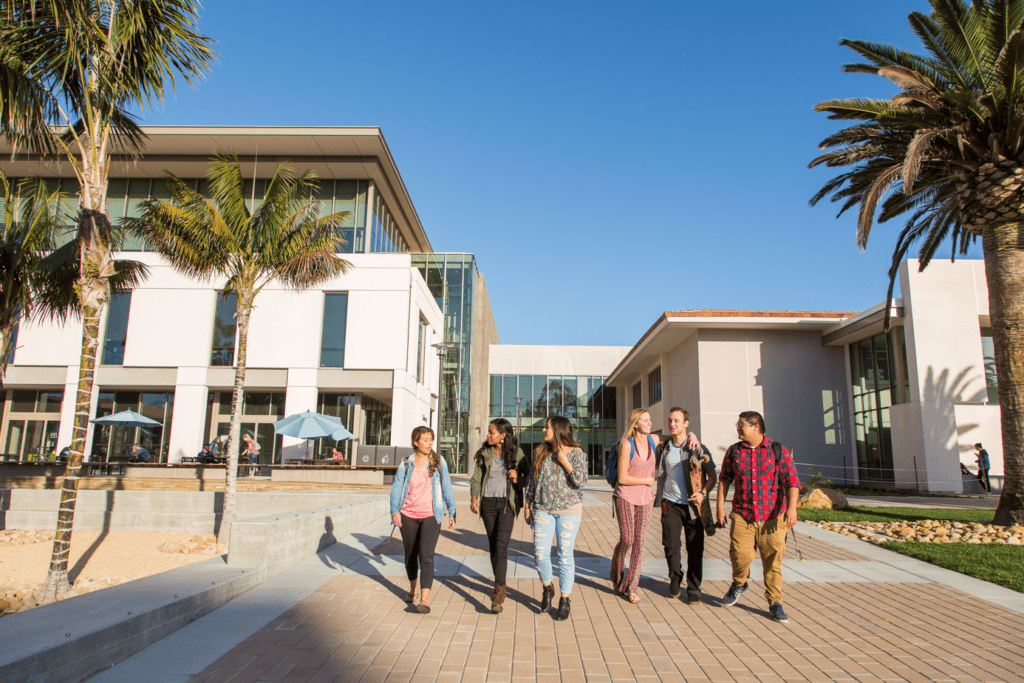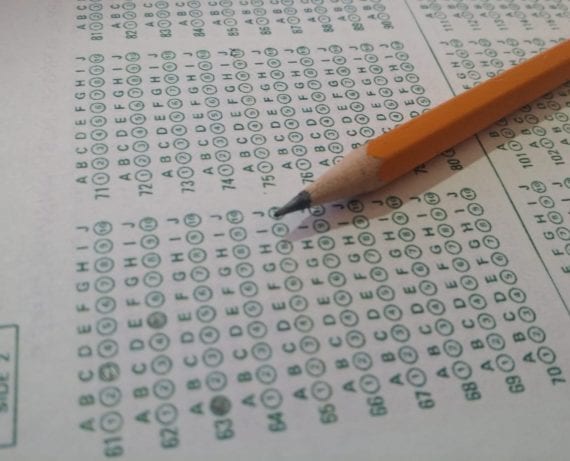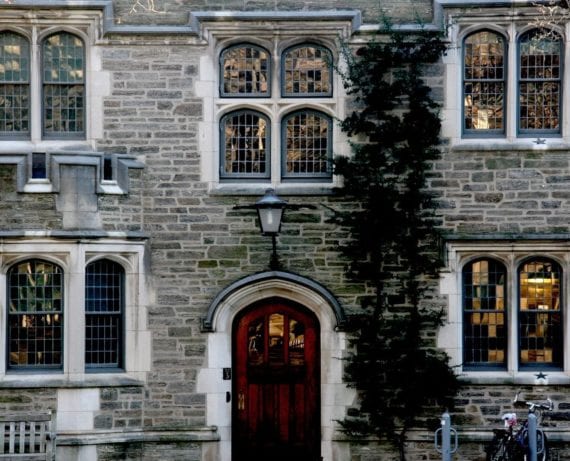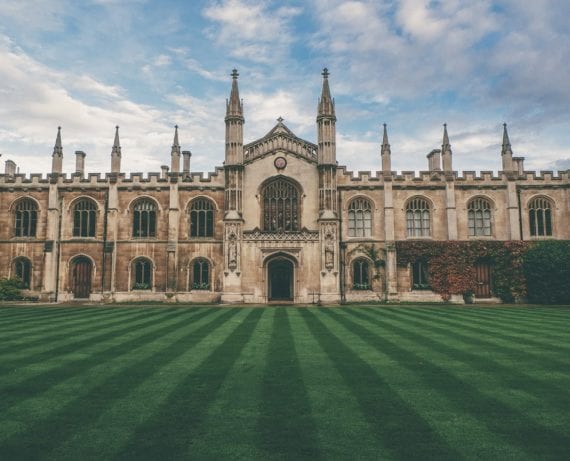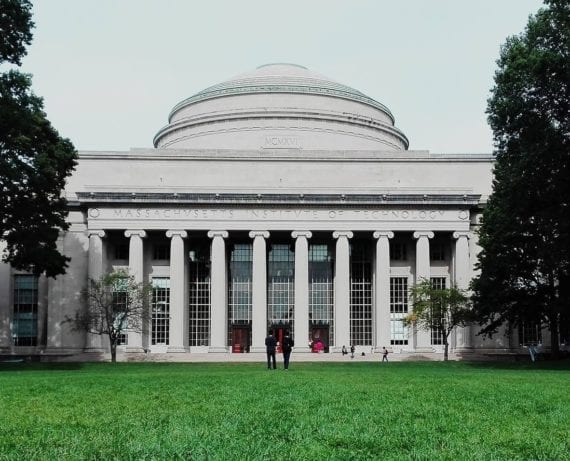How to get into Harvard University?
Established in 1636, Harvard University is the oldest and best known university in the USA, if not the world. It has become a byword for high quality education, prestige and success.
Located in Cambridge, Massachusetts, Harvard University is a founding member of the Ivy League. It is a group of eight outstanding
American universities known for their academic excellence. Ivy League institutions dominate the rankings, and Harvard University has topped the Times Higher Education World Reputation Rankings since 2011, while the QS World University Rankings 2021, place it third, globally, with an overall score of 97.9.
Harvard University has produced eight American presidents, including George W. Bush and John F. Kennedy, 62 billionaires, Pulitzer Prize and Academy Award winners, leading actors and directors, 150 Nobel prize winners and a host of Olympic medallists. Harvard University prides itself on shaping leaders in every field of endeavour and, if you want to join its 9,900 undergraduates and become an Ivy League alumnis, you will need to convince the admissions board that you, too, can excel and have the drive and talent to carry on the Harvard University legacy.
Getting into Harvard University– the acceptance rate
Harvard University, like every Ivy League university [group of best Universities in the world], is highly oversubscribed and around 95-96 percent of applicants will inevitably be rejected every year. In order to maximize your chances of being in the lucky minority who receive an offer of a place, you need to understand the process, exactly what Harvard Uinversity is looking for, and how your application will be assessed.
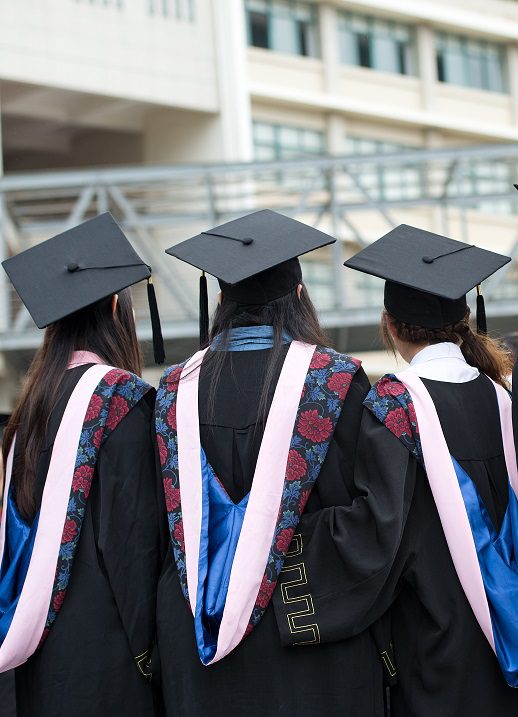

Here are a few pointers for getting into Harvard University:
-
If you are an athlete, your chances of applying successfully are increased 100 fold, since although athletes only make up one per cent of the application pool, they account for 10 per cent of acceptances. "Athletic prospects" is one of the four elements scored in your application form - along with academic potential, extra-curricular activities and personal qualities. The application process offers you an opportunity to submit additional materials, such as artworks, music, choreography etc, and if you are talented in a specific sport, you could consider requesting permission from the Application Committee to upload evidence. Remember, Ivy League universities are highly competitive when it comes to sports, and Harvard will always be on the lookout for someone who can make a difference in collegiate athletics competitions, which were the original reason for creating the Ivy League, and include 33 sports:17 played by men, 16 by women.
-
If another member of your family has attended Harvard, you fall into the category of legacy applicant, and this significantly improves your chances of securing a place. The same is true of children of faculty members and staff and applicants who have outstanding academic achievements, or what was formerly known as the Dean's List. Taken together, these factors raise your chances of acceptance from 4 to 45 per cent. Indeed, 30 per cent of Harvard's students fall into these ALDCs categories.
-
Harvard University pays close attention to the letters of recommendation you have to send in from two teachers, and these too are assessed and analysed according to a numerical score. Thus, if you are "the best student I have ever taught", you will be allocated a 1; if, however, you are "the best student in class" or "the best student this year", then you will receive a 2 in this section of the process. Choose your referees carefully and make sure that they are aware of guidance for writing recommendations.
-
Harvard has a clear diversity policy, which was tested in the courts in 2018. From the university's responses, it is evident that the admissions department believes a mixed community yields great benefits, and sets about making sure there is a balance between urban and rural areas, various ethnic groups and people from different socio-economic backgrounds. This could work in your favour or against you, depending on the overall cohort, but it was evident that Harvard appreciated individuals who have overcome adversity in their lives - whether this is ill health, poverty, obstacles to education - and these in no way disadvantage you when applying.
-
You may be offered an interview with a Harvard alumnus once your application has been submitted. International students will only receive and invitation to this type of interview if there are Harvard alumni available in their country of residence The interviewer will know your name and the name of your school, but will not have access to your application form or any other material. The interviewer will produce a summary of their views and impressions, so take this seriously and make sure that you communicate who you are and what you offer, and why you will make a valuable contribution to Harvard and deserve to study in an Ivy League university.
Getting into Harvard University – what is the university looking for?
Harvard University has set out what it is looking for in applicants and emphasises its holistic approach to candidates. In short, this means that having great scores and passing exams with brilliant marks is only part of the picture. Dean Fitzsimmons, in an interview with the New York Times, took great pains to emphasise how much time is spent discussing every application, and voting on whether or not to offer them a place .
Harvard’s list of character traits and descriptions of the ideal candidate can be summed up as: individuals with potential and drive. Like all Ivy League universities, Harvard sees its mission as educating the next generation of leaders, whether this is in politics, administration, business, the law or the arts. Leaders have to show initiative and take advantage of opportunities which present themselves. They should have confidence, energy and high degrees of motivation. Leaders also need to be open to new ideas and have passion mixed with talent.
Harvard University looks for potential, and sets out to discover whether applicants have fully tapped their abilities, know where they are going and have shown engagement in different areas of their life: whether this is in academic studies, employment, sport, volunteering, or extracurricular activities. The university wants to determine if applicants share its core values, of compassion, honesty and working towards excellence.
Each applicant’s personality is assessed in terms of enthusiasm, achievements, energy and high levels of commitment. If you are passionate about restoring old motorbikes, or etymology, are trying to produce the perfect geranium hybrid or charting the changing flight patterns of storks, tell them! It’s the commitment that counts at Harvard University.
What is the application process for getting into Harvard University?
Harvard University accepts applications sent in through the centralised Common Application. When you register, you will be emailed a PIN to use in order to access the Applicant Portal, which is normally sent out in mid-September.
You can apply for Early Admission, with a closing deadline of 1 November or Regular Decision, which shuts on 1 January. Recent research has established that Early Admission is by far the better option, because the acceptance rate is 13.9 per cent, whereas the Regular Decision acceptance rate is a far lower 3 per cent. You will receive a reply by mid-December and mid-March, respectively, depending on when you upload your application. It is important to remember that if you are rejected in the Early Action round, you not permitted to reapply through Regular Decision.
The application fee is currently $75 dollars, and this can be paid online.
As well as sending in your midyear school reports, midyear or predicted grades (for IB students), if you receive an offer, you subsequently have to send your final school report which needs to be received by 1 July, or mid-July for IB students. You can also choose to submit SAT or ACT results – although these are no longer mandatory at Harvard University. Finally, as noted earlier, you will have to provide two teachers’ recommendations, from different subject areas.
Once you have filled in where you are applying in the Common App, you will be faced with having to tackle the Harvard Questions.
The Harvard University Supplemental questions cover:
- personal information
- family
- educational history
- test scores you have achieved
- extra-curricular activities and interests
- a writing task - where you can submit an essay of your choice or respond to one of three prompts: Prompt 1 is optional and you should aim to write 150 words. Prompt 2 is mandatory and should be between 50 and 150 words. Prompt 3 is also optional and offers you a list of suggested topics. Aim to write 500 words.
Whichever writing option you choose, try to convey your own, unique voice and produce a thrilling, memorable essay. Getting into Harvard University is a fierce competition so steer clear of clichés and the obvious response. Remain true to your own character and interests, since Harvard appreciates individuality as much as team spirit.
What happens to my application once it is received by Harvard University?
Harvard University – The first reader notes down citizenship, race, whether or not the applicant has legacy status, their test scores, athletic standing and socio-economic background. You, or your school, will be contacted if any information appears to be missing.
A numerical scale, ranging from 1-4, is then used to assess academic and extra-curricular accomplishments, personal qualities and the content of the letters of recommendation, as well as athletic prospects. To take one example, an athlete with national or international level achievements will be given a 1, while someone who is editor of the school newspaper will get a 3, and a student president or a competitor in a state or regional tennis tournament merits a 2. Applicants who are members of hobby or sports teams will get a 4. It is clear that excellence is, once again, the key to the grades your application is given.
As a rule of thumb, candidates with an overall score of 2 and above are passed on to the first committee stage – the subcommittee. The applicant is introduced to the subcommittee by a representative, and the sub-committee members vote whether or not to take the application further and pass it up to the full committee, where the final decision is made. According to the Dean of Harvard, the full committee has been known to spend an hour discussing a single application, since this is a time-consuming and very thorough process, in which each application can end up being read four times.
The Harvard newspaper, the Harvard Crimson, notes that certain applicants have been rejected because a committee member stated “we have enough mathematicians” or because an interviewer found the candidate “withdrawn”. So, the human element and the quest for a balanced intake both play a major part in whether or not you will get into Harvard University.
It has also been pointed out that several applicants’ offers have been withdrawn by Harvard University after their social media accounts came under scrutiny and revealed sexist, racist or unacceptable views. You would be well-advised to bear this in mind.
USA Programmes
The cost of getting in to Harvard University
Ivy League universities are not cheap, but over 70 per cent of Harvard University students benefit from the university’s generous financial aid packages. You need to apply for financial aid by 1 November if you are submitting your application for Early Action, and 1 February if you have chosen Regular Decision. If you are successful in being offered a place, you will receive an estimate of Harvard’s aid package along with your acceptance letter.
Harvard operates a need-blind admissions policy. It has a sliding contribution scale when it comes to tuition fees, accommodation, dining plans and expenses. If the family income is under $65,000 a year (and the value of your main home is not taken into account), then you will pay no contribution. Families who earn from $65,000-$150,000 will be asked to contribute from 0-10 per cent of the annual costs.
In 2020-2021, the average annual cost of attending Harvard University was $72,391.00.
Getting in to Harvard University – is it worth applying?
Yes.
Harvard University is the leading university in the world and will transform your CV, career prospects and potential. It opens doors you have probably not even dreamed of approaching. Harvard University, like all the Ivy League universities, is a richly-endowed and resourced institution, with the outstanding teaching staff. It also has facilities that help it stand head and shoulders above other centres of teaching and learning, not only in the USA, but globally.
If you have an enquiring mind, the energy to push through obstacles, the commitment to pursue your intellectual curiosity, wherever it may lead you, Harvard will play its part in helping you to expand the boundaries of knowledge. Harvard’s General Education Program, which replaced its Core Curriculum, sets out to meet the needs of the students and to create a bridge between education and life outside university. There are eight categories of courses:
- Aesthetic and Interpretive Understanding
- Culture and Belief
- Empirical and Mathematical Reasoning
- Ethical Reasoning
- Science of Living Systems
- Science of the Physical Universe
- Societies in the World
- United States in the world
Don't miss our webinars and events!
I am keen on getting into Harvard University, what is the first step?
Get in touch with us, here at Elab, so that we can help you to prepare your application for Harvard University. We have sent many students to Ivy League colleges, including Harvard. This is how we can put you in touch with our mentors who are currently studying at this prestigious centre of academic excellence.
Call or drop us an email. Our experienced US consultants will start the process of preparing your application. What is more, they ensure you meet the requirements and are ready to write the all important essay and present yourself at interview. We will provide you with any information you need on Ivy League universities, Harvard, living in the USA, visa regulations, accommodation, financial aid etc.
In view of the stiff competition for places from highly-gifted students Elab recommends that when applying to Harvard, or other Ivy League universities, you also consider applying to a few of the other fantastic universities that the USA has to offer, just in case.
What do you think about Elab?
I had trouble choosing the right university and direction until I turned to ELAB for help. Together we went through the application process, the first choice university was the University of Surrey, the second - Durham University. I got to my dream university, where I'm on my way to get a diploma with honors in biological sciences and win the title of captain of the University of Surrey tennis team! I met many amazing people and made friends with students from all over the world. I am immensely grateful to ELAB for helping me through every stage of the application – from determining what course is perfect for me, to mentally preparing me to start studying abroad.


Elab has definitely helped me choose my career path and the university that will give me the most prospects for the future. Through my interview with my consultant and university mentors, I know what I need to do and work on to achieve my goal. I feel that with Elab, I am more prepared than others to start a new stage in my life, which is to go to college. I've recommended Elab to a few people before, and I'm sure I'll do it many more times.


I met Elab on the instructions of my friend, who also studied abroad. He helped me in choosing a direction and university, writing and checking my "personal statement" and completing my loan application. In addition, I have contacted consultants on a number of times if possible.
From the very beginning, I remember my adventure with the studios wonderfully, seriously! From the beginning I found very kind people, immediately met friends - the closest contact I have with roommates but at university I also found a group of friends.
With my hand on my heart, I admit that going to Wales was the best decision I made myself!


I started my cooperation with ELAB on holiday. I didn't know at the time where to start applying to study abroad, but most of all I had no idea where or in what direction to apply. Thanks to a series of tests and meetings with professionals, I was able to choose the right direction and fit for me. The universities I chose with the help of a Consultant met all my expectations, and the whole application system for them became much clearer. With ELAB, I was able to focus on learning and providing the documents required by universities. As a result, I received offers from all the universities I applied for, including the University of Warwick, The University of Manchaster and Utrecht University.







